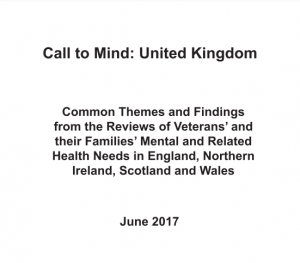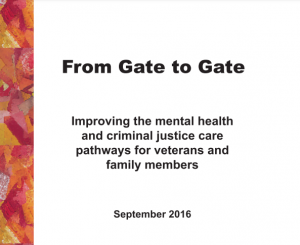The BBI team have been commissioned to undertake needs assessments in a wide variety of environments and with different user groups. We have considerable experience using a mixed qualitative and quantitative methodology to identify service gaps, lapses in standards, and the real needs of often difficult to reach or misunderstood groups. Some of the case studies BBI staff have been involved in are listed below:

Police Custody Suites and SARCs
The BBI team were commissioned by the East Midlands Regional Offender Health Commissioning Unit and the East Midlands Police Forces (Northamptonshire, Nottinghamshire, Lincolnshire, Leicestershire, Derbyshire) to carry out health needs assessments in all the Police Custody Suites and SARCs. There team members visited 20 police custody suites and five SARCs to carry out detailed evaluations and assessments on key areas, including physical health and mental health issues and provision; Criminal Justice Liaison and Diversion schemes; substance misuse issues and provision; needs of young people; the use of Section 136 powers; and clinical governance and quality standards of Forensic Physicians and healthcare professionals. The outputs were detailed individual reports for each Force with recommendations to help them improve the commissioning and delivery of health and substance misuse provision within Police Custody Suites and SARCs.
Immigration Removal Centres
BBI staff were commissioned by NHS England and the Home Office to undertake the first ever health needs assessments in all the 11 Immigration Removal Centres (IRCs) in the UK, with the aim of ensuring all those held in these centres were receiving adequate and appropriate health care. This required the use of quantitative assessment data collection tools, including data reviews; structured interviews with security and healthcare staff, and residents; and the use of questionnaires. The outputs of this project were individual reports for each IRC and a national summary report, which was used by NHS England to develop a national strategy for health and social care services within IRCs.

Inside Gender Identity
In 2017, BBI staff launched a report into the health and social care needs of transgender offenders: Inside Gender Identity. The report was based on a review of the national and international literature and 55 interviews with a cross range of stakeholders from the health and criminal justice system, Lesbian, Gay, Bisexual and Transgender agencies and transgender offenders. Its purpose was exploring the ways in which trans individuals’ relative lack of inclusion in population-based health and social care needs assessments.
This is largely a result of research and surveys failing to include identification of trans people in data collection and analysis. Lack of clarity and consistency in the use of terms to describe transgender also adds to the challenge of interpreting data. Nevertheless, there is a large and growing body of evidence that trans people experience a wide range of significant health and social care needs that are directly associated with being a trans person, including poor physical and mental health, poor access to treatment and services, and higher social risks such as homelessness, abuse, and family rejection. The full report can be accessed here.
Yorkshire and Humber Transforming Care Programme Health Needs Assessment
BBI staff were commissioned by NHS England Yorkshire & Humber in 2016 to undertake a Health Needs Assessment for the subregion focusing on the Learning Disability (LD) cohorts across each of the six Transforming Care Partnerships (TCPs). While the principal aim of the Health Needs Assessment (HNA) was to provide an overview of the sub-region a specific focus on each TCP area was included in the final report. The recommendations focus on two areas: ways in which future health needs assessments can be improved and key health needs identified for the Transforming Care Programme.

UK Review of Veterans’ Mental Health Services and Needs
BBI staff led on the development of the first UK-wide report of the mental and related health and social care needs of veterans and their family members and provision of support services. This work involved evidence reviews and engaging with statutory and voluntary sector providers, commissioners and service users to obtain their consent to participate in interviews and focus groups. Four Call to Mind reports were produced for England, Northern Ireland, Wales and Scotland as well as a UK summary report which highlighted gaps in service provision and areas of good practice:
- Call to Mind: England (October 2015)
- Call to Mind: Wales (May 2016)
- Call to Mind: Scotland (September 2016)
- Call to Mind: Northern Ireland (May 2017)
The UK summary report sought to identify how the mental and related health and social care needs of veterans and their family members were being identified and addressed, and in particular, how service responses to meet these needs might be improved. Each review involved a detailed examination of core documentation relating to strategy and planning of services, including the processes and systems by which mental health and related health and social care needs of veterans and families might be assessed. A total of 212 individual respondents contributed to the reviews through interviews and focus groups, including 75 veterans and family members.
The UK Summary Report can be downloaded here.
From Gate to Gate: Improving the Mental Health and Criminal Justice Care Pathways for Veterans and Family Members
This needs assessment identified practical solutions and recommendations for policy, commissioning and planning to support improvements to mental health and criminal justice care pathways for veterans with complex mental health problems. NHS England valued the experience of BBI’s staff in scenario planning and community engagement and the potential of their methods to capture the lived experience of family members of veterans alongside a critical appraisal of the care pathways and key points for interventions. The final report can be downloaded here.
NEEDS ASSESSMENT KEY CONTACTS
Dr Jonathan Bashford
Research Programme Director
jon.bashford@bbi.uk.com
Joel Rennie
Programme Manager
joel.rennie@bbi.uk.com





